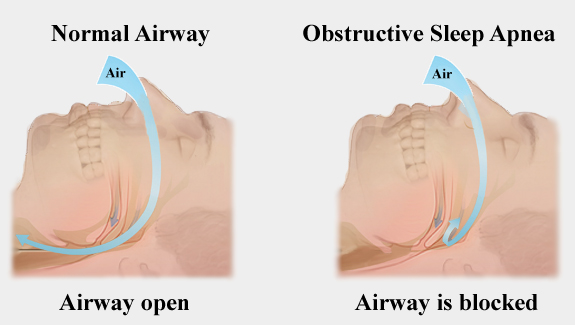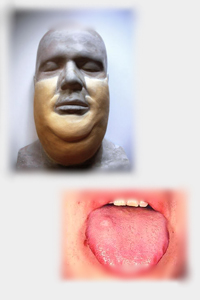When you're awake, your throat muscles keep your airway open so you can breathe. When you fall asleep,
your muscles relax which narrows the throat. In normal individuals, air flow is not blocked, but if you have sleep apnea,
the breathing passage becomes partly or fully obstructed. This may be due to:
- Relaxation of throat and tongue muscles more than usual
- Your tongue or tonsils are larger relative to the size of your throat
- You are overweight and the extra fat tissue around your windpipe makes it more narrow
- The bony structure of your face and skull cause a smaller airway size [2]
Often these features are genetically determined, which is why sleep apnea can cluster in families.




